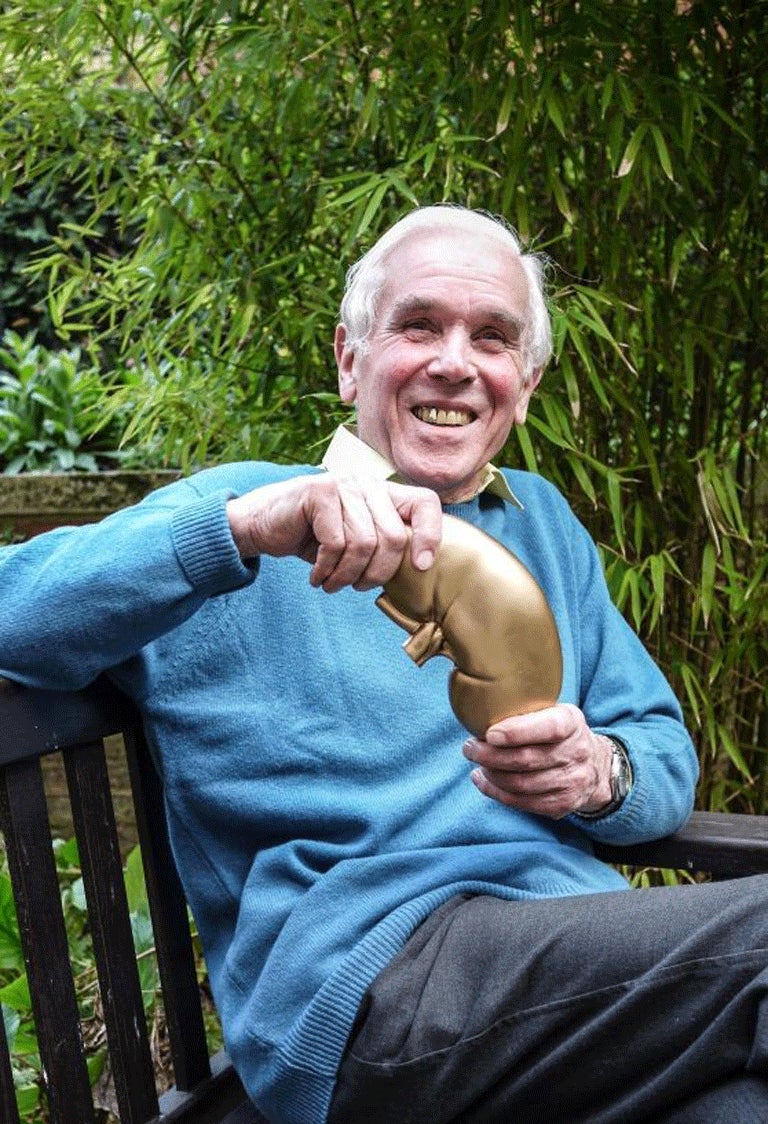83-year-old gave blood 57 times - now he's donated a kidney
Widower is hailed for his altruism after giving organ to NHS waiting-list patient he didn’t even know

Your support helps us to tell the story
From reproductive rights to climate change to Big Tech, The Independent is on the ground when the story is developing. Whether it's investigating the financials of Elon Musk's pro-Trump PAC or producing our latest documentary, 'The A Word', which shines a light on the American women fighting for reproductive rights, we know how important it is to parse out the facts from the messaging.
At such a critical moment in US history, we need reporters on the ground. Your donation allows us to keep sending journalists to speak to both sides of the story.
The Independent is trusted by Americans across the entire political spectrum. And unlike many other quality news outlets, we choose not to lock Americans out of our reporting and analysis with paywalls. We believe quality journalism should be available to everyone, paid for by those who can afford it.
Your support makes all the difference.An 83-year-old man has achieved a double by becoming the oldest living kidney donor in the UK and the oldest person in the country to give a kidney to a stranger.
But Nicholas Crace isn’t done yet. “I’ve given blood 57 times,” the pensioner said. “There’s not much of me left to give while I’m alive but they can have the rest when I’m no longer here.”
The former charity director, from Overton, Hampshire, is the latest member of an exclusive club known as altruistic donors - someone who gives a kidney to somebody on the NHS waiting list whom they do not know.
The operation, which took three hours, was carried out recently at the Queen Alexandra Hospital, Portsmouth. The widower underwent 14 tests over 6 months before receiving approval for the operation. He was told that his kidneys functioned as well as someone in their 40s.
Mr Crace said: “The kidney has to be in tip-top condition. I don’t smoke but I drink more than they say you should. I must have selected my parents well. ”
A volunteer driver for a local hospice, Mr Crace was back on his bicycle and mowing the lawn three days after the operation. He would give more bodily donations if he could. He said: “It’s nice at 83 to still be of service. I couldn’t offer my bone marrow because you aren’t allowed to be a donor after 40 and you’re not allowed to give blood after 70.”
Mr Crace, who had been seeking a renewed purpose in life after losing his wife to illness last year, hopes more pensioners will sign up for the donation programme. “Most of us only need one kidney so it’s a sensible thing to do. I was aware of the miseries that people on dialysis go through. A living kidney donor makes all the difference to their lives.”
He added: “I cannot remember quite what put the idea of being a living kidney donor into my mind but in September 2011 I thought that it might be worth investigating. The head of the transplant unit said that my generation are some of the best donors. We’ve shed most of our dependents, we have plenty of time and fewer responsibilities.”
Consultant surgeon Sam Dutta, who performed the operation, said: “We know from numerous studies that a living donor kidney performs better, works quicker and lasts longer than one from a deceased donor.
“All the detrimental factors related to being on dialysis are completely taken care of by a good, functioning kidney. The recipient just gets a new lease of life.”
Almost 100 people have donated a kidney since the altruistic living donor scheme was launched in the UK in 2006 and in 2011 a further 1,000 people gave a kidney to a relative or friend.
Although the tests were painless and unstressful, each one could have revealed a reason for the kidney donation being unacceptable, which Mr Crace’s increasing anxiety as each test was successfully concluded.
“I would have been very disappointed if I had been turned down,” he said. “I was ideally placed to be a donor after the hospital had established that I was fit and had excellent kidneys.”
“Altruistic donors are very special people,” said Annabel Ferriman, chair of Give a Kidney - One’s Enough, a charity dedicated to raising awareness of altruistic donation. “They have the imagination to understand the suffering that people go through on dialysis while waiting for a transplant and the courage and generosity to do something about it.”
Join our commenting forum
Join thought-provoking conversations, follow other Independent readers and see their replies
Comments